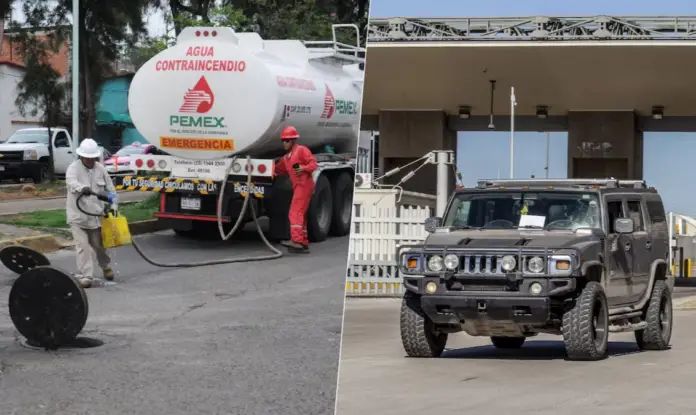The presence of imported used cars in the country, as well as the consumption of low-quality fuels known as huachicol, affects automotive industry sales, the health of owners, and the environment, warned the Mexican Association of Automotive Distributors (AMDA).
Guillermo Rosales, president of AMDA, reported that while the world is moving toward access to cleaner technologies and fuels, Mexico still faces significant challenges that have slowed the progress of the formal automobile industry.
“One of the most important problems we face is that there is no vehicle renewal; there is no transition in which older vehicles are removed from circulation, giving way to a replacement that incorporates vehicles with lower impacts due to the availability of better technology,” he said.
He highlighted that from January 2022 to September of last year, approximately 2.5 million imported chocolate cars entering the border without a catalytic converter or that are obsolete were regularized; However, AMDA estimates that this figure could already exceed 3 million vehicles, as the government stopped reporting on the program.
Additionally, he highlighted that consumption of higher-quality fuel has decreased during this same period, indicating that many vehicles circulating in the country are consuming so-called huachicol, or stolen, unrefined fuel.
“Fuel consumption during this period is lower than before the regularization (without considering the pandemic). We have introduced fuels that are not part of the formal marketing system. These fuels have no application or quality certification, and they contribute significantly to the environmental impact,” he said.
He considered that this exacerbates the fiscal damage and strengthens criminal groups, but above all, “tarnishes the reputation” of the automotive industry, urging action.

Source: elfinanciero




